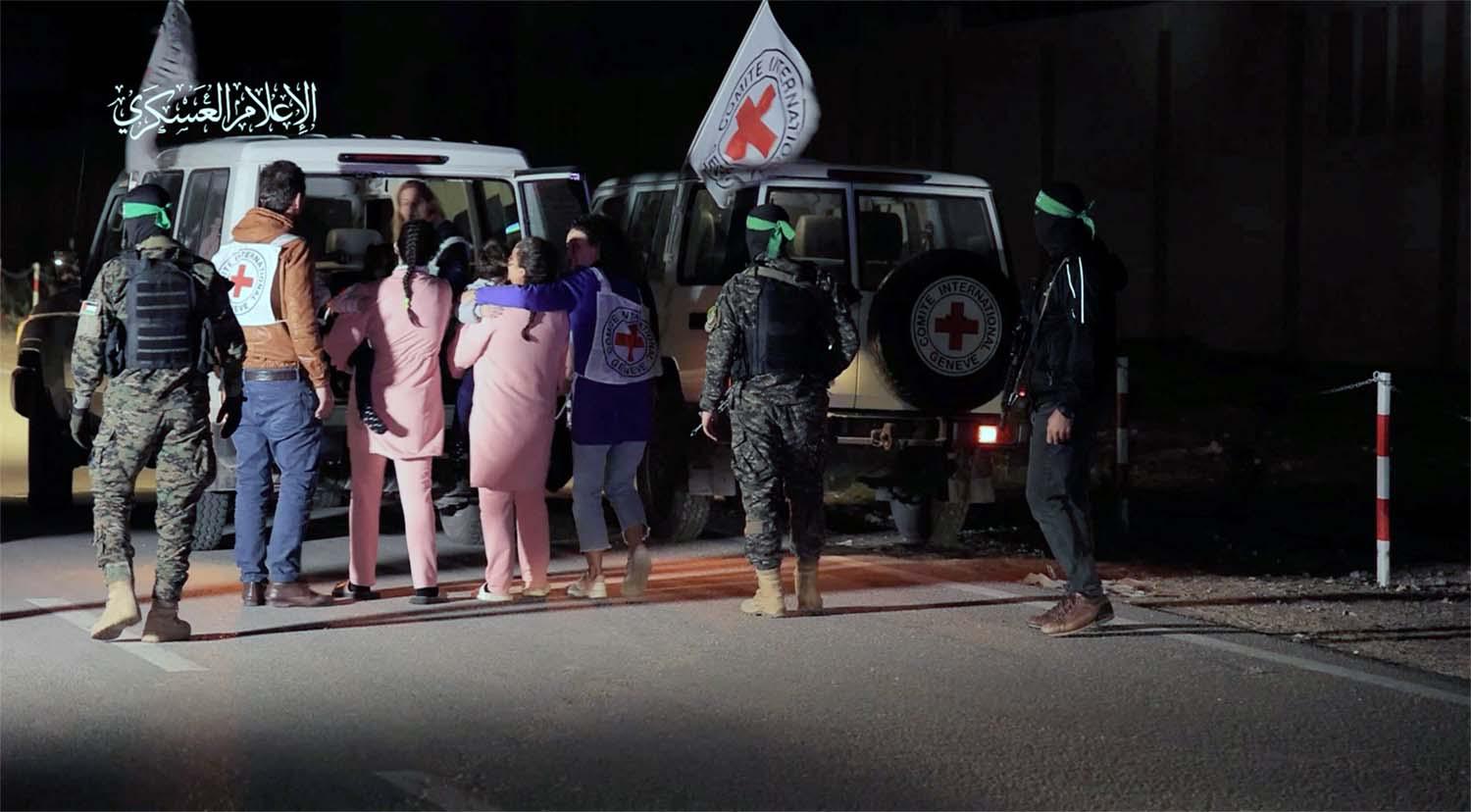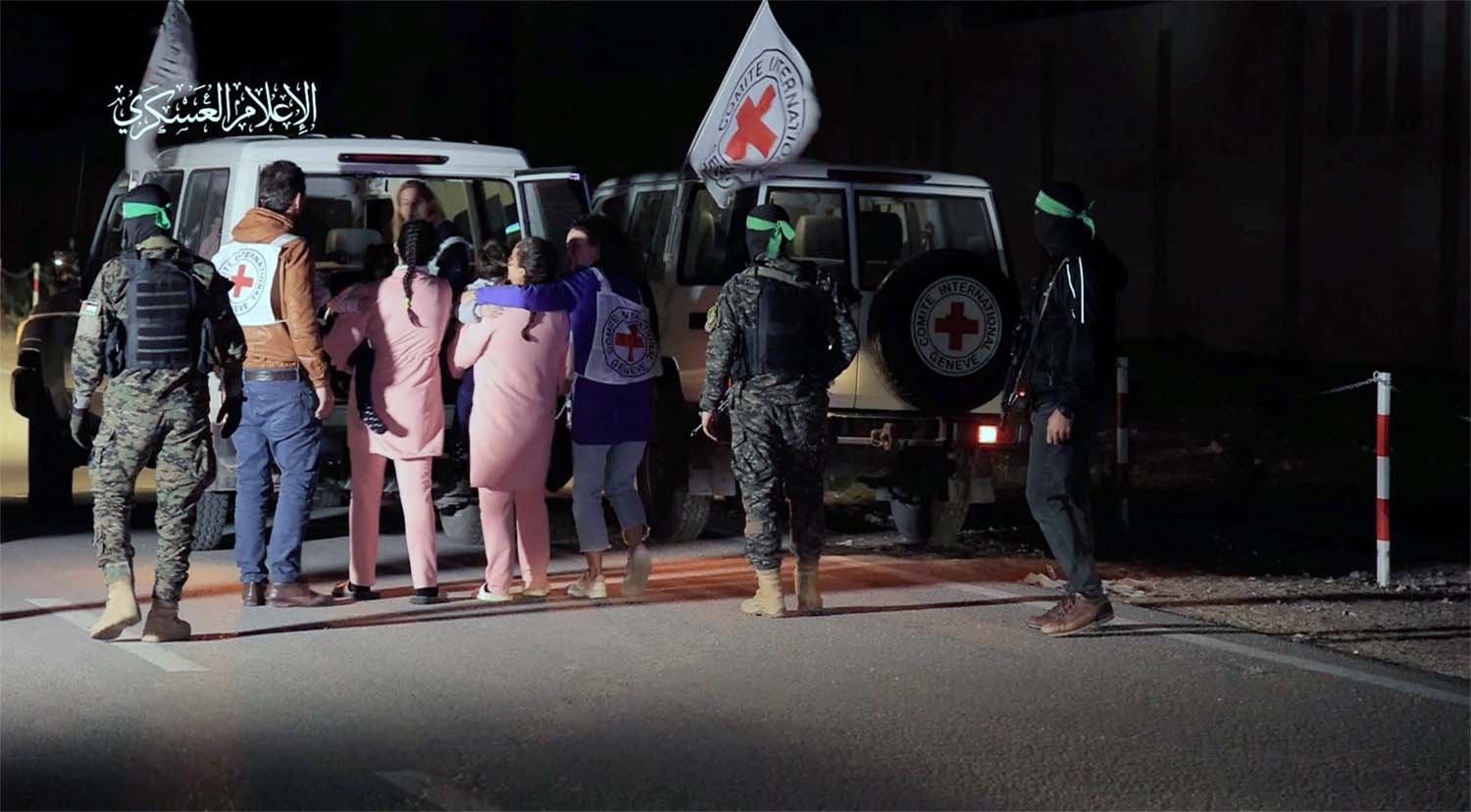Israel-Hamas truce in Gaza extended two days
CAIRO/JERUSALEM - Mediator Qatar said on Monday a truce between Israeli and Hamas forces in Gaza had been extended by two days, continuing a pause in seven weeks of warfare that has killed thousands and laid waste to the Palestinian enclave.
"An agreement has been reached to extend the humanitarian pause for an additional two days in the Gaza Strip," a Qatari foreign ministry spokesperson said in a post on social media platform X. Hamas also said it had agreed a two-day extension.
There was no immediate comment from Israel, but a White House official confirmed agreement had been reached.
US President Joe Biden thanked Israeli Prime Minister Benjamin Netanyahu as well as Qatar and Egypt - who have been facilitating indirect negotiations between the two sides - for reaching an agreement that will allow more hostages to be freed from Gaza and more aid to reach the territory.
Later the Israeli military said the Red Cross had confirmed 11 hostages - the latest to be freed under the terms of the original truce that had been due to end on Monday night - were on their way to Israeli territory. Qatar said the newly released hostages included three with French citizenship, two with German citizenship and six Argentine citizens.
Hamas said earlier it had received a list of 33 Palestinians to be released from Israeli jails in return. It said these included three female prisoners and 30 minors.
US national security spokesperson John Kirby said on CNN the White House did not believe any Americans would be among the latest group to be freed from Gaza, where Washington says seven to nine US citizens are being held.
HUMANITARIAN CRISIS
None of the announcements specified how many hostages would be released under the extended agreement, but earlier the head of Egypt's State Information Service, Diaa Rashwan, said the deal being negotiated would include the release of 20 Israeli hostages from among those seized by Hamas during its Oct. 7 assault on southern Israel. In exchange 60 Palestinian prisoners held in Israeli jails would be freed, he said.
The truce agreed last week was the first halt in fighting in the seven weeks since Hamas attacked Israel, killing 1,200 people and taking about 240 hostages back into Gaza, according to Israeli tallies.
In response to that attack, Israel has bombarded the enclave and mounted a ground offensive in the north. More than 15,000 Palestinians have been killed, Gaza's Hamas-run government says, and hundreds of thousands displaced.
Wide areas of the enclave have been flattened by Israeli airstrikes and artillery bombardments, and a humanitarian crisis has unfolded as supplies of food, fuel, drinking water and medicine run out.
Netanyahu had said at the weekend that once the truce ended, "We will return with full force to achieve our goals: the elimination of Hamas; ensuring that Gaza does not return to what it was; and of course the release of all our hostages."
BRIEF RESPITE
The truce agreement also allowed for aid trucks to enter Gaza.
United Nations Secretary-General Antonio Guterres described the extension of the truce as "a glimpse of hope and humanity," but warned that two more days was not enough time to meet Gaza's aid needs.
"I strongly hope that this will enable us to increase even more the humanitarian aid to the people in Gaza that (are) suffering so much - knowing that even with that additional amount of time, it will be impossible to satisfy all the dramatic needs of the population," Guterres told reporters.
Palestinians in Gaza had earlier said they were praying for an extension of the truce. Some were visiting homes reduced to rubble by weeks of intensive Israeli bombardment, while others queued for flour and other essential aid being delivered by the United Nations relief agency UNRWA.
Displaced Palestinian woman Um Mohammed said life was hard for people still living in the north of the enclave, which has borne the brunt of Israel's ground invasion so far.
"People up there are searching for food. People want to live, to secure themselves for the coming days, because they are afraid, so they're securing what they can," she said. "And if you ask if they are restful or at peace, they are not."





